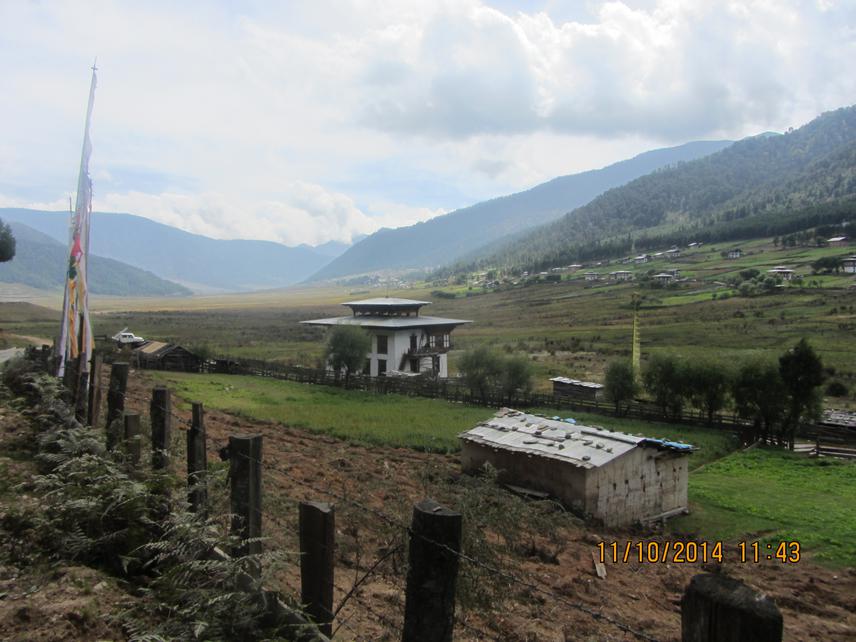Jigme Wangchuk
Other projects
23 Jan 2017
Impacts of Hydropower Dam on Macroinvertebrates and Fish in Kurichhu Hydropower Plant
Main purpose of this project is to document the diversity of macroinvertebrates. This is going to serve the baseline information for the future plan and management of conservation area as the area lacks information particularly on aquatic biodiversity.

Project site.
Freshwater diversity in Bhutan is least explored and there is no exception with the present proposed project area. Phobjikha is an important Conservation Area that serves wintering habitat for Black Necked Crane. Annually the valley receives over 300 numbers of Black Necked Cranes in winter. Additionally it also supports over 5000 population with more than 500 households excluding the government, cultural and private sector institutions.
Phobjikha is recognized as socio-culturally rich and ecologically sensitive area which requires special management of ecosystem that supports coexistence of natural system along with human settlements. Thus in the recent years the conservation area was also registered under RAMSER Convention. Flora and fauna in the area has been fairly known while the status of freshwater diversity is yet to be explored. Lack of baseline information on macroinvertebrates is the foremost challenge in planning and management of aquatic diversity. The threats on the aquatic biodiversity are expected with the increasing population, economic development, agricultural practices, grazing and ecosystem modification. Therefore this project attempts to document the biodiversity in the wetland ecosystem which serves habitat for important bird, Black Necked Crane.
The sampling will be carried out in pre-monsoon and post monsoon, with effect from October, 2014 to October, 2015. The sampling will involve the field assistant from National Park, territorial divisions and undergraduate students from College of Natural Resources. Their participation is expected to help in carrying out similar future study elsewhere in the country and help in building baseline information in the country. The results will be presented to the conservation institutions, research institutions and College of Natural Resources. The information will be brought to larger audience by online. The crucial part of this project will help decision makers particularly, RSPN (Royal Society for Protection of Nature) to focus their conservation efforts more sustainable in future.